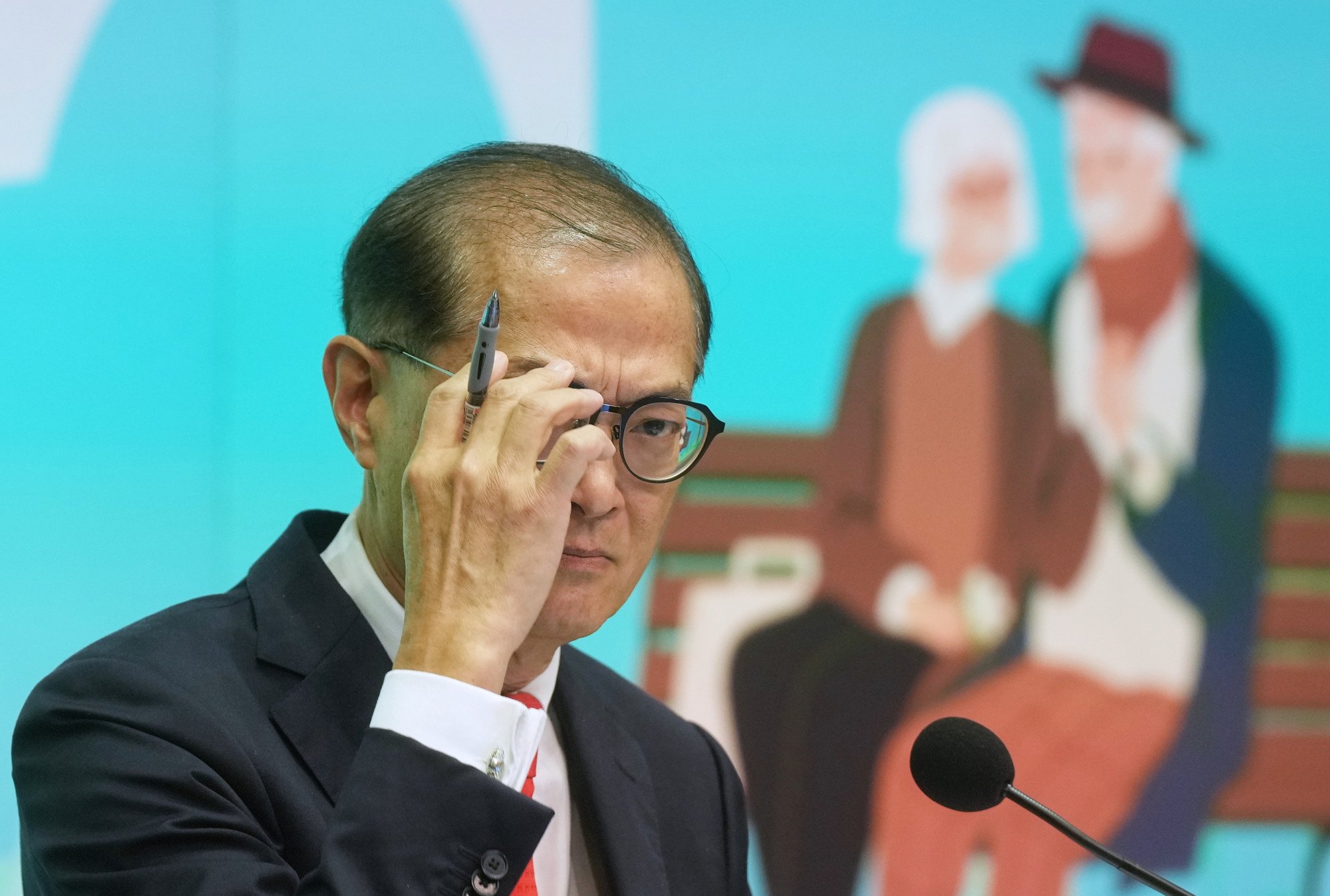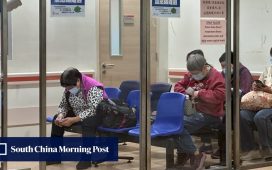“There are ways for complaints [to be made in Hong Kong] if … the patients feel that there are some services which are not up to their expectations. For the financial side, our Department of Health has a team to look into all the claims for the healthcare vouchers.”
The bay area is Beijing’s plan to link Hong Kong, Macau and nine Guangdong province cities into an economic powerhouse.
Lo said no serious irregularities had been recorded for services provided by the University of Hong Kong-Shenzhen Hospital, referring to one of the two medical institutions currently covered by the voucher scheme in Shenzhen.

But he did not further elaborate on how complaints would be handled on the mainland.
Alex Lam Chi-yau, a lawyer and chairman of advocacy group Hong Kong Patients’ Voices, said the scheme could help reduce the burden on the city’s public healthcare system while providing more choice for residents.
He said that in Hong Kong, patients could seek help from the Medical Council or the Dental Council over unsatisfactory services delivered by doctors or dentists, and they could also bring a court case by themselves or with a lawyer’s help.
“But this system does not apply to mainland medical institutions or staff. You cannot sue a mainland doctor in Hong Kong,” he said. “If the resident is not familiar with the mainland system, where should they file their complaints and claims? I am afraid I am not familiar with it as well.”
Lam urged the government to explain to residents how they could file complaints and claims, while also ensuring the services of the mainland institutions were up to standard and preventing abuse as the voucher scheme involved taxpayer money.
Healthcare specialists cool to expanded Hong Kong elderly voucher scheme
Healthcare specialists cool to expanded Hong Kong elderly voucher scheme
“They said they would ensure there would be a complaint mechanism. But after their complaints, if it involves claims or compensation, or even insurance, what are the procedures?” he said.
The Elderly Health Care Voucher Pilot Scheme, launched in 2009, provides an annual voucher of HK$2,000 (US$255) per person with the amount allowed to accumulate up to HK$8,000.
People aged 65 or over who hold a Hong Kong identity card or Certificate of Exemption issued by the Immigration Department are eligible for the scheme.
The government on Monday said it expected to expand the scheme to five bay area hospitals that offered integrated medical services and another two providing dental care near the border with Shenzhen from the third quarter.

Patients’ rights advocate Tim Pang Hung-cheong, of the Society for Community Organisation, also urged the government to clearly explain the channels elderly residents could use when filing complaints, such as those for overcharging.
Linda Tsang Chi-man, executive director of the Hong Kong Federation of Trade Unions’ bay area branch, said greater promotional and educational efforts about the expanded scheme should be made.
“For example, when the scheme was extended to the University of Hong Kong-Shenzhen Hospital, many elderly from Hong Kong had no idea how to book appointments and calculate the voucher amount,” she said.
“We suggest that those institutions set up counters designated for Hongkongers or appoint service ambassadors to teach them how to use the vouchers.”
Hong Kong to police healthcare voucher sharing scheme for elderly to prevent fraud
Hong Kong to police healthcare voucher sharing scheme for elderly to prevent fraud
In case of any medical disputes, elderly residents could seek help from the union’s bay area centres or its free-of-charge legal consultation hotline, she added.
Mickie Lam Suk-mei, a 65-year-old retired logistics worker who has been living in the town of Sanxiang in Guangdong’s Zhongshan since 2019, said the location of healthcare facilities was a major concern for her.
The closest hospital under the expanded scheme – Zhongshan Chenxinhai Hospital of Integrated Traditional Chinese and Western Medicine – is a one-hour drive away.
“But with my public health insurance [on the mainland], I only need to pay less than 20 yuan [US$3] to see a doctor and get my drugs at the health station in my neighbourhood,” she said.
“I used to see a doctor at the University of Hong Kong-Shenzhen Hospital with a 2,000 yuan subsidy, but a trip to Shenzhen costs me 800 yuan and two hours each time,” she said, referring to a separate subsidy under a scheme rolled out in 2020 to let public hospital patients living on the mainland have follow-up consultations at the facility when strict border control measures were in place during the pandemic.
Hong Kong carers need more healthcare support from government: advocacy group
Hong Kong carers need more healthcare support from government: advocacy group
Retiree Lam, who used to see doctors at public hospitals in Hong Kong for her high blood pressure and diabetes before moving to Zhongshan, stopped visiting the Shenzhen facility after a year. Instead, she continued her regular consultation at a Zhongshan hospital and a community health station.
She was also concerned about the transparency of the fees at those facilities, saying she hoped authorities would provide more information to help patients make informed decisions.
Kane Chan, a 42-year-old gas industry worker living with his parents in Foshan, said he might consider driving his 70-year-old father, who had a stroke last year, to the Guangzhou hospitals for treatment instead of visiting a community clinic nearby.
“I suppose the Hong Kong government would have reached some agreements with those hospitals and there shouldn’t be any disputes or conflicts … my father is happy with the medical quality on the mainland. He has recovered very well.”







